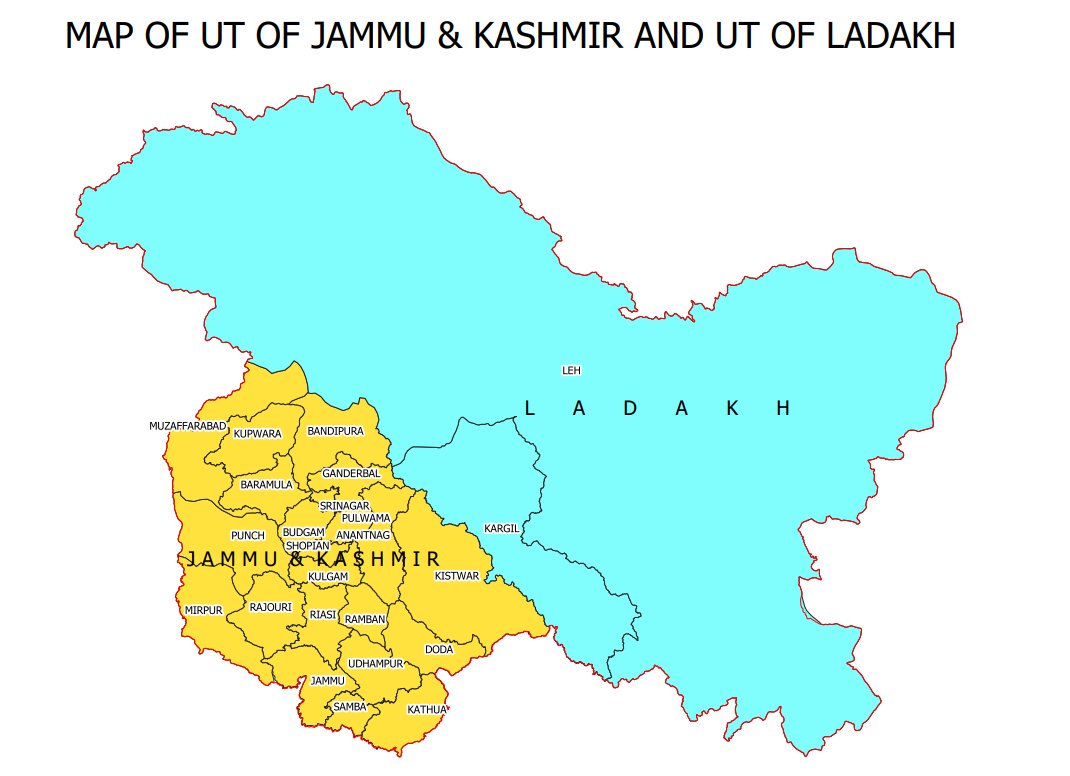
A lot is being said about new domicile laws or rules that have been framed for the Union Territory (UT) of Jammu & Kashmir. There is a large number of people who are opposed to them. They are advancing many arguments against these laws.
A friend asked me why I had not written on the issue. Well, I just did not feel like doing so and that was the basic reason. Besides, I am anyway against prescription of any domicile reservations. As such, it seemed that my not writing on the issue was not needed perhaps.
Let me begin by stating last things first. Let me say it again. I am aghast that a residential period of 15 years has been prescribed for getting domicile of the UT of Jammu & Kashmir. I feel this is unwarranted and should have been, let us say, only five years.
Why? Why not? Maharaja Hari Singh had issued two sets of State Subject laws, one on April 20th 1927, and the other on June 27th 1931. The period of residency prescribed by him was only 10 years. What justifies a period of 15 years to get a domicile certificate?
Let us talk of the conditions prescribed for getting the UK or US citizenship. How much is the period of residency prescribed for getting that? Please check. Countless people from India, doctor couples, other professionals, are waiting for acquisition of citizenship there. Why should the period of residency prescribed be 20 years there? Or even more.
Something like what is followers by a good number of Arab nations where people can stay for donkeys’ years. Still be treated like donkeys, fit only for working and not for citizenship. Were Permanent Resident Certificate (PRC) laws of J&K state inspired by these laws? May be. How long does it take for refugees in Germany, UK or France to get absorbed in those societies? Is it 15 years by law? If that happens, the refugees arriving in the Western nations in 2006-07 would still not be citizens there. Please check again.
Everywhere else a good number of people argue for making acquisition of citizenship easy. Oh, not when it comes to Jammu and Kashmir. Why? “Special Status Syndrome” at play here and in full flow.
Name any major city or cities of India in which people from Jammu or Kashmir do not own properties. Name some top notch hotels of India in which people from J&K don’t own shops. Name some tourist attractions of India where there are no people from J&K. Well, Jalandhar, Ludhiana, Chandigarh, Delhi, Agra, Lucknow, Bhopal, Ahmedabad, Bangalore, Indore, Mumbai and countless other cities have people from J&K domiciled there. There is no city in which students from J&K are not to be found.
Yes, a good number of them studying outside J&K on scholarships provided by New Delhi. This has been going on for last several years. Certainly, more than six years as the Modi government had taken charge on May 26, 2014.
Despite that, most of these students, their parents, as also relatives, would let out howls in protest when someone talks about giving people from outside the union territory of J&K it’s domicile. How very shameless and ironical it is! Perhaps there is no limit to being selfish and absolute blindness when self-interest destroys all reasoning.
The West Pakistan refugees came to J&K in 1947. A residency of 10 years (as prescribed by the Maharaja) would have made them eligible for domicile by mid 1957, give or take a couple of months. The Valmikis were brought in 1957 and by 1967, or early 1968, they should have been absorbed in the state of Jammu and Kashmir.
The women of the state, their spouses and children, should have enjoyed all the rights of State Subjects ab initio. It was a gender discrimination of the worst kind which denied them these rights.
Gorkhas fought for the defence of the state, right from 1947, or even earlier. Yet, these soldiers were expected to sacrifice their lives in the line of duty without domicile rights in J&K. All these enumerated above are some examples of unfair, unjust laws.
Indeed, some laws barred them all. But these laws were totally unjust and were scrapped on August 5, 2019. Good riddance. The state was converted into a Union Territory on the same day. Very good. From October 1947 to August 2019, J&K was a state and that status and concession granted to it failed to integrate it fully into the Indian Union. Only “I, me and myself” were the apparent policies that drove it’s polity.
Now, nothing conceivable can change the changed status and changed laws in a hurry. So, brace up and be loyal Indians. Forget dreaming about winning back so-called “Special Status” till at least the next Lok Sabha elections due in April-May 2024. The alternative choice of fomenting troubles is always open. If India could deal with insurgency, secessionist ideas, countless killings and more, so would it be doing to keep J&K an “integral part of the nation” as it has done so far.
The Central government should be bold and cut down the period of residency needed to get domicile of J&K to 5 years, and not peg it at 15 years as per the new domicile laws. We have paid a heavy price for mollycoddling wrong policies and using velvet glove where iron fists were needed. No more. Period.
